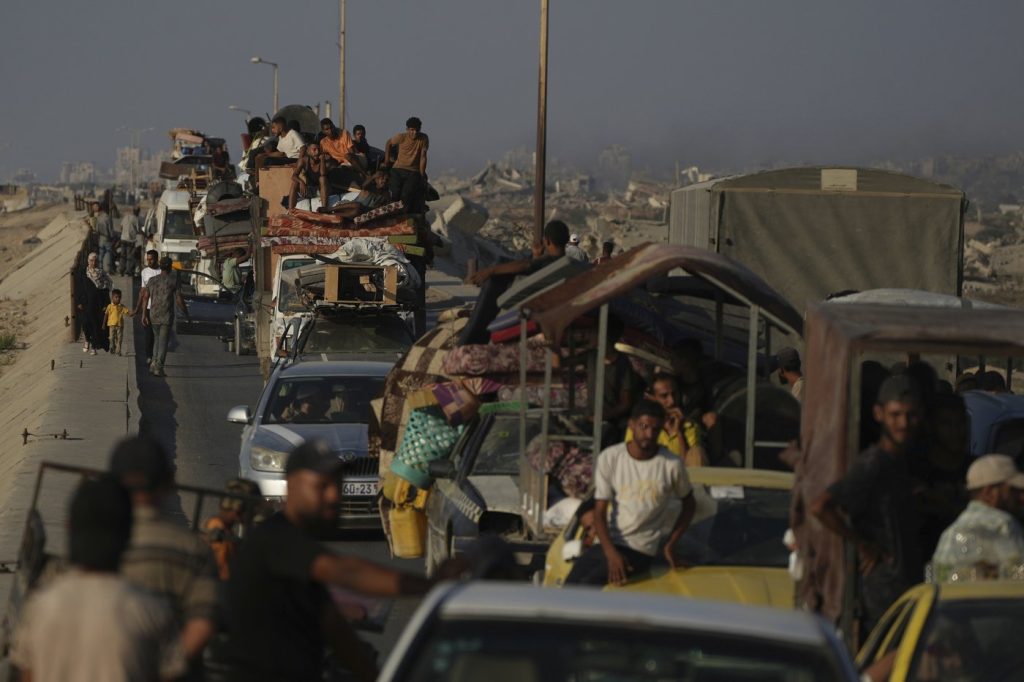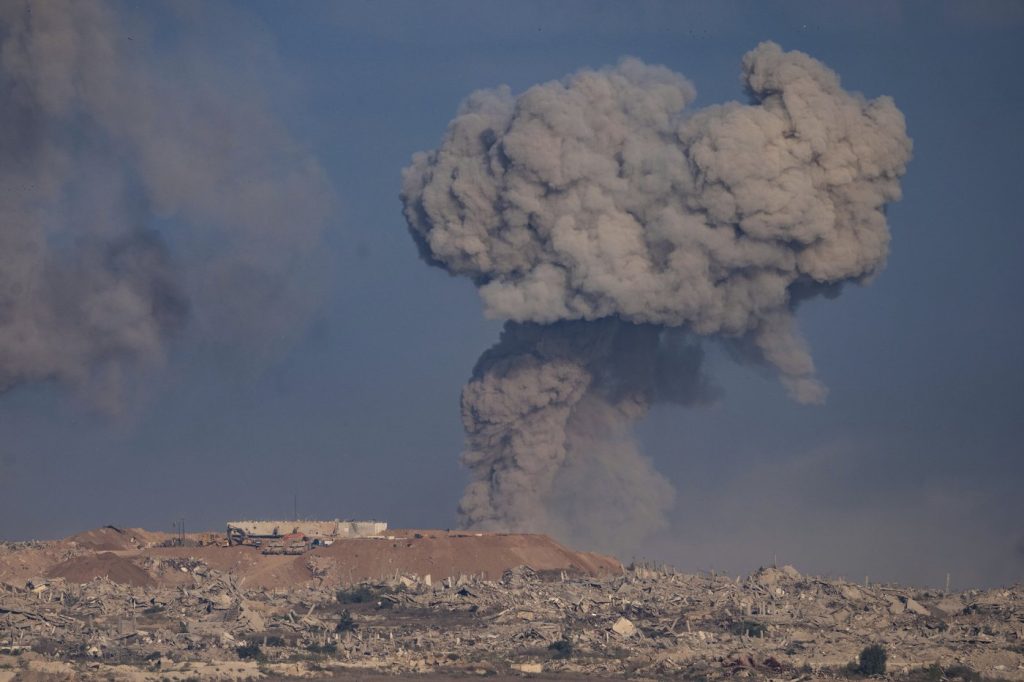Israel is set to slow or halt humanitarian aid into parts of northern Gaza as it escalates its military offensive against Hamas, an official disclosed on Saturday. This announcement came a day after Gaza City was declared a combat zone, marking a significant shift in Israel's military operations amidst ongoing conflict with Hamas.
The decision to limit humanitarian aid is likely to intensify criticism of the Israeli government, which is already facing growing frustration both domestically and internationally regarding the dire living conditions for Palestinians and remaining hostages in Gaza, after nearly 23 months of war. According to the unnamed official who spoke to The Associated Press, Israel plans to stop airdrops over Gaza City in the coming days while also reducing the number of aid trucks entering the region. This move coincides with preparations to evacuate hundreds of thousands of people from the area.
On Friday, Israel suspended daytime pauses in fighting that had been previously implemented to facilitate aid delivery. The Israeli military categorized Gaza City as a Hamas stronghold and alleged the continued use of a tunnel network by militants. Humanitarian organizations, including the United Nations, have criticized the limited aid measures, stating they fall significantly short of the 600 trucks of aid required daily for the population of Gaza.
Displaced individuals like Fadi Al-Daour expressed the desperation of the situation, stating, “We left because the area became unlivable.” He added, “No one is searching, and there are no journalists to film. There is nothing.” The plight of civilians in Gaza continues to worsen amid the ongoing violence.
In a related development, Prime Minister Benjamin Netanyahu’s office announced that the remains of Idan Shtivi, a hostage taken during the Hamas-led assault on October 7, 2023, were recovered in Gaza. Currently, 48 hostages remain in Gaza, with Israel believing that at least 20 of them are still alive. Families of the hostages have raised concerns that the military escalation may endanger their loved ones, with rallying cries demanding a ceasefire to ensure their safe return.
Concerns regarding a potential “massive population movement” as a result of the ongoing military campaign have been voiced by humanitarian organizations. The president of the International Committee of the Red Cross, Mirjana Spoljaric, warned that such an evacuation would trigger a mass displacement that no area in Gaza could accommodate due to extensive destruction and critical shortages of essential resources. She deemed a safe and dignified evacuation of Gaza City impossible under current conditions.
Heavy bombardments continued as the Israeli military launched airstrikes in Gaza City overnight. Strikes on a bakery in the Nasr neighborhood reportedly resulted in the deaths of 12 individuals, including six women and three children, while another attack in the Rimal neighborhood killed seven. In addition, Israeli gunfire has been reported to have struck four individuals attempting to receive aid in central Gaza. The Gaza Health Ministry further reported that 10 additional casualties occurred in the past 24 hours due to starvation and malnutrition, raising concerns about the humanitarian crisis.
Overall, over 63,371 Palestinians have died in Gaza during the conflict, with the Health Ministry highlighting that around half of those casualties are women and children. This data, which comes from a health department managed by Hamas, is considered by the U.N. and independent experts to be the most reliable source on casualties, despite Israeli government disputes over the figures.












